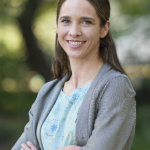The First 100 Days of the Trump Administration: Implications for Energy and Climate — A Bipartisan Discussion

- This event has passed.
You can read key points from the panelists on this Storify. Stay tuned for the full program video.
After the first 100 days of the Trump administration, along with a new Congress, what does US energy policy look like? And what are the implications for U.S. and international efforts to address climate change?
The Steyer-Taylor Center for Energy Policy and Finance is convening a bipartisan panel of experts on Tuesday, May 2 at 5:30 PM in the Moot Courtroom of the Crown Building, to explore these questions and more.
There will be a reception following the program, which will be located in the Manning Faculty Lounge.
Speakers:

James L. Connaughton is one of America’s most distinguished energy and environmental experts, as both corporate leader and prominent White House policymaker. He currently serves as President and Chief Executive Officer at Nautilus Data Technologies, a revolutionary data center company. Previously, Connaughton served as Executive Vice President of C3 Energy, enabling energy companies to realize the full benefit of their IoT and system investments.
Prior to his role at C3 Energy, Connaughton was Executive Vice President and Senior Policy Advisor at Exelon and Constellation Energy (which merged with Exelon).
In 2001, Connaughton was unanimously confirmed by the U.S. Senate to serve as Chairman of the White House Council on Environmental Quality. From 2001‐2009 he served as President Bush’s senior advisor on energy, environment and natural resources, and as Director of the White House Office of Environmental Policy. During his service with the federal government, Connaughton worked closely with the President, the Cabinet and the Congress to develop and implement energy, environment, natural resource, and climate change policies. This work led to a series of new market‐based programs, incentives, technology initiatives and public‐private partnerships that included bipartisan energy legislation, nearly $90 billion for clean energy technology research and incentives to accelerate commercial deployment of advanced technologies such as plug-‐in hybrid vehicles, renewable fuels, nuclear, solar and wind.

Katharine Mach is a Senior Research Scientist at Stanford University, an Adjunct Assistant Professor at Carnegie Mellon University, and a Visiting Investigator at the Carnegie Institution for Science. She leads the Stanford Environment Assessment Facility (SEAF). Advancing foundations for action, her research is focused on integrative assessment of climate change risks and response options. The goal is innovating and evaluating new approaches to assessment, simultaneously applying them to inform decisions and policy. Priorities include advancing methods for integrating evidence, applying expert judgment, and communicating resulting syntheses of knowledge. From 2010 until 2015, Mach co-directed the scientific activities of Working Group II of the Intergovernmental Panel on Climate Change, which focuses on impacts, adaptation, and vulnerability. This work culminated in the IPCC’s Fifth Assessment Report and its Special Report on Managing the Risks of Extreme Events and Disasters to Advance Climate Change Adaptation. The associated global scientific collaborations have supported diverse climate policies and actions, including the Paris Agreement. Mach received her PhD from Stanford University and AB from Harvard College.

Jonathan Pershing is Environment Program Director at the William and Flora Hewlett Foundation. He leads a team of grantmakers focused on climate change in the U.S., China, India, Europe, and Latin America; conserving the North American West; and solving environmental problems facing disadvantaged communities in the San Francisco Bay Area. He joined the foundation in January 2017.
Prior to this role, Jonathan served as Special Envoy for Climate Change at the U.S. Department of State and lead U.S. negotiator to the UN Framework Convention on Climate Change. In his role as Special Envoy, Pershing directed international climate policy on behalf of the U.S. government and served as the U.S. representative at ministerial level climate sessions, including those of the United Nations. He was one of architects of the Major Economies Forum and the Clean Energy Ministerial, and has actively supported climate and sustainable development activity under the G7, G20 and other bodies.
He holds a Ph.D. in geology and geophysics from the University of Minnesota. A scientist by training, he served as a lead author, review editor and contributor for reports of the Nobel-prize winning Intergovernmental Panel on Climate Change.

Dan Reicher is executive director of the Steyer-Taylor Center for Energy Policy and Finance at Stanford, a joint center of the Stanford Graduate School of Business and Stanford Law School, where he also holds faculty positions. Reicher has more than 25 years of experience in energy and environmental policy, finance and technology. He was a member of President Obama’s Transition Team, assistant secretary of energy in the Clinton administration and a staff member of President Carter’s Commission on the Accident at Three Mile Island. Reicher came to Stanford in 2011 from Google, where he was director of Climate Change and Energy Initiatives. Prior to joining Google, he was president and co-founder of New Energy Capital Corp., a private equity firm funded by the California State Teachers Retirement System and Vantage Point Venture Partners to invest in clean energy projects. He was also executive vice president of Northern Power Systems, one of the oldest renewable energy companies in the U.S. and recipient of significant venture capital investment. Reicher earned a BA in biology from Dartmouth College and a JD from Stanford Law School. He also studied at the Harvard Kennedy School of Government and at MIT.

Michael Wara is an expert on energy and environmental law, whose research focuses on climate and electricity policy. Professor Wara’s current scholarship lies at the intersection between environmental law, energy law, international relations, atmospheric science, and technology policy.
Professor Wara, JD ’06, was formerly a geochemist and climate scientist and has published work on the history of the El Niño/La Niña system and its response to changing climates, especially those warmer than today. The results of his scientific research have been published in premier scientific journals, including Science and Nature.
Professor Wara joined Stanford Law in 2007 as a research fellow in environmental law and as a lecturer in law. Previously, he was an associate in Holland & Knight’s Government Practice Group, where his practice focused on climate change, land use, and environmental law.
Professor Wara is a research fellow at the Program in Energy and Sustainable Development in Stanford’s Freeman Spogli Institute for International Studies, a Faculty Fellow at the Steyer-Taylor Center for Energy Policy and Finance, and a Center Fellow at the Woods Institute for the Environment.
